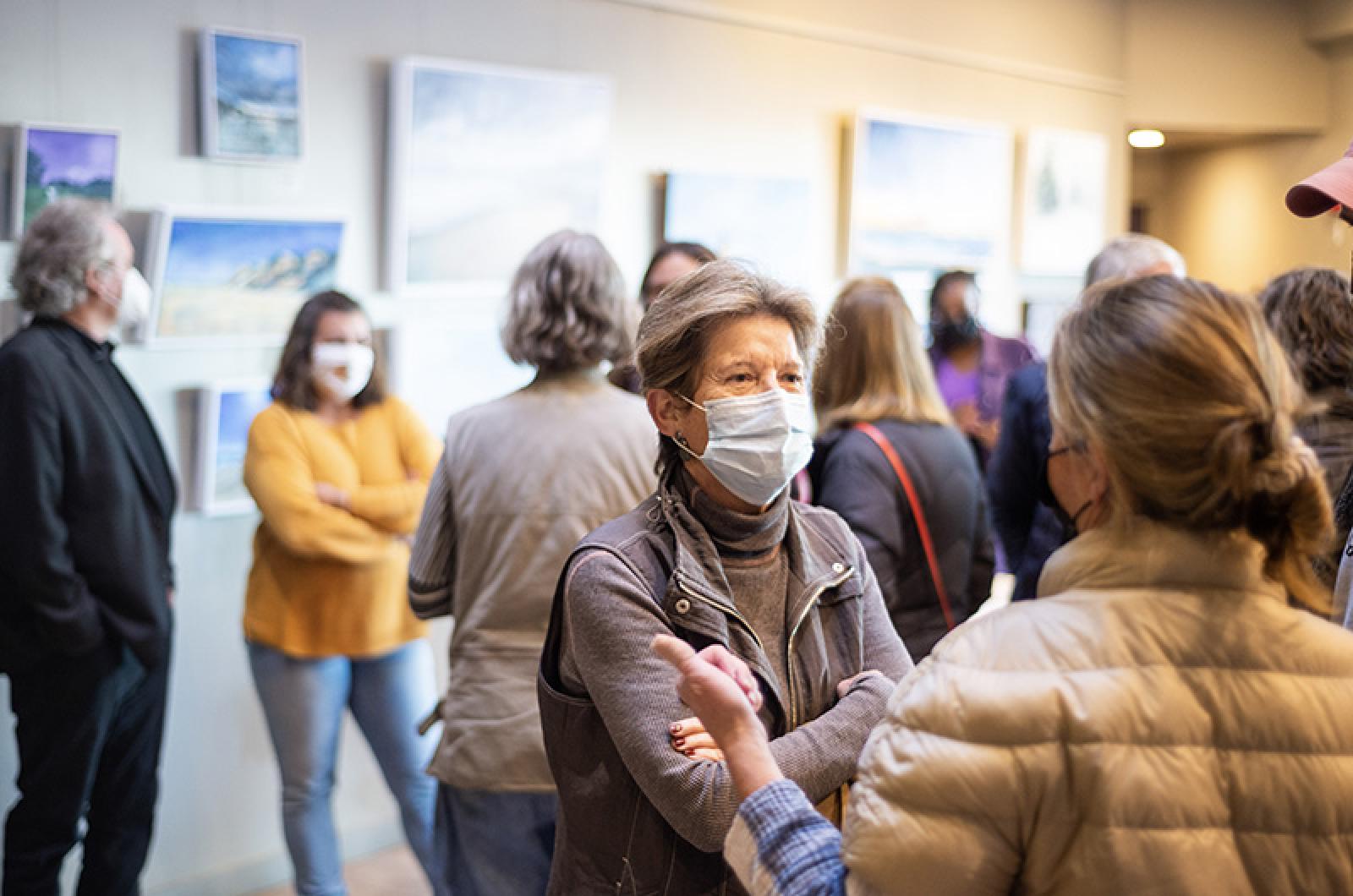The latest documentary by Island filmmaker Len Morris, A Culture of Caring, takes an upbeat, engaging tour of the increasingly diverse food equity network on Martha’s Vineyard, spearheaded by Island Grown Initiative.
From local farms to commercial kitchens to the food pantry, mobile market, community meals and home deliveries from end to end of the Vineyard, the 20-minute film reveals how hard Island food activists are working to combat hunger — and how much more still needs to be done.
“This was really a labor of love for everyone who was involved,” said Island Grown executive director Rebecca Haag, welcoming audience members to the film’s invitation-only premiere at the Martha’s Vineyard Film Center Tuesday night.
Ms. Haag thanked Mr. Morris’s Galen Films production company for including so many voices in the short documentary, which is focused on Island Grown Initiative but reflects other food equity work as well.
“As you’ll see in the film, not just IGI, but the whole family of people who work in food security on the Island are all committed to making sure that everyone on this Island who needs food has access to food,” Ms. Haag said.
A Culture of Caring shows viewers such IGI successes as the mobile market, which brings affordably-priced produce to residential neighborhoods; the food pantry, which came under the IGI umbrella at the beginning of this year; and the food-prep program that is bringing more ready-to-heat meals to Islanders with limited kitchen access.
In the farm fields, gleaners harvest surplus produce and learn about edible weeds. Children smile as they tuck into a freshly-made summer lunch. The Camp Jabberwocky kitchen, off-season, becomes a baby-food factory.
The film also visits a community meal, part of a decades-long Island tradition coordinated by Marjorie Peirce at local churches.
Bright touches of acoustic music weave the action sequences with a series of interviews reflecting not only the progress made over the past few years in widening food security, but what still needs to be done to strengthen the Island’s food resiliency and continue supporting its hungry.
One major obstacle is that neither IGI nor the food equity network has the infrastructure to expand their services. With no dedicated facilities for cooking and serving, food programs are caught in an Island shuffle from one borrowed spot to another.
“We are couch-surfing kitchens right now,” says Kayte Morris, IGI’s senior director of food equity programs, during the film.
The food pantry and other Island anti-hunger programs had long existed individually, until about five years ago when Ms. Haag called a meeting of public and private agencies and community volunteers that quickly became the food equity network.
Now Ms. Haag is setting her sights on a central facility for network activities — food storage, preparation, serving and logistics — that presently are scattered and peripatetic.
“We manage to make it work, but we know that there’s a need out there that’s still not being met,” Ms. Haag told the film center audience.
“The vision we have is something called the Island Food Center, and in this center we would have a permanent home for the Island Food Pantry; we would have a commercial kitchen; we’re going to have some meeting rooms and education rooms . . . we could bring social workers in from the hospital. We could really provide services to people who come in.
“We could also supply some meals who are there, and hot meals,” Ms. Haag continued, adding that — as Ms. Morris says in the film — the food pantry has delivered to people whose address is their vehicle.
Warehouse space is also part of the vision, to forestall shortages from off-Island in stormy weather, she said.
The new film adds a powerful marketing tool to Ms. Haag’s arguments, showing the determination of both IGI and network members. Because Tuesday’s audience was limited due to Covid, she said, a second private screening would be held for IGI volunteers before A Culture of Caring is released to the public online.
For more information about Island Grown Initiative, visit igimv.org.









Comments (4)
Comments
Comment policy »